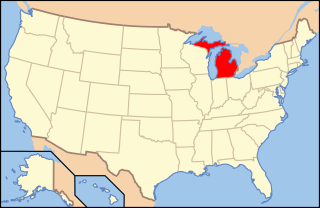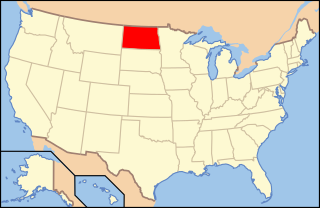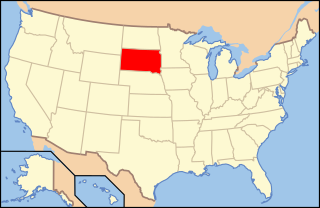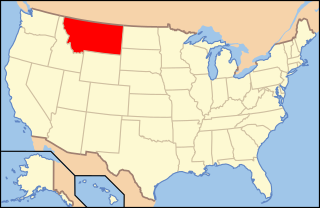
The Civil Rights Act of 1964 is a landmark civil rights and labor law in the United States that outlaws discrimination based on race, color, religion, sex, national origin, and later sexual orientation and gender identity. It prohibits unequal application of voter registration requirements, racial segregation in schools and public accommodations, and employment discrimination. The act "remains one of the most significant legislative achievements in American history".
The Employment Non-Discrimination Act (ENDA) is legislation proposed in the United States Congress that would prohibit discrimination in hiring and employment on the basis of sexual orientation or, depending on the version of the bill, gender identity, by employers with at least 15 employees.

The Civil Rights Act of 1968 is a landmark law in the United States signed into law by United States President Lyndon B. Johnson during the King assassination riots.

Lesbian, gay, bisexual, and transgender (LGBT) persons in the U.S. state of Michigan may face legal challenges not faced by non-LGBT residents. Same-sex sexual activity is legal in Michigan, as is same-sex marriage. Discrimination on the basis of sexual orientation and gender identity is not explicitly banned within state law. However, a ruling of the Sixth Circuit Court of Appeals and a decision of the Michigan Civil Rights Commission have ensured that members of the LGBT community are not discriminated against and are protected in the eyes of the law.

Lesbian, gay, bisexual, and transgender (LGBT) persons in the U.S. state of Indiana enjoy most of the same rights as other people, but still may face some challenges that non-LGBT residents do not otherwise face. Same-sex marriage has been legal in Indiana since October 6, 2014, when the U.S. Supreme Court refused to consider an appeal in the case of Baskin v. Bogan.

Lesbian, gay, bisexual, and transgender (LGBT) persons in the U.S. state of North Dakota may face some legal challenges not experienced by non-LGBT residents. Same-sex sexual activity is legal in North Dakota, and same-sex couples and families headed by same-sex couples are eligible for all of the protections available to opposite-sex married couples; same-sex marriage has been legal since June 2015 as a result of Obergefell v. Hodges. State statutes do not address discrimination on account of sexual orientation or gender identity; however, the U.S. Supreme Court's ruling in Bostock v. Clayton County established that employment discrimination against LGBT people is illegal under federal law.

Lesbian, gay, bisexual, and transgender (LGBT) persons in the U.S. state of South Dakota may face some legal challenges not experienced by non-LGBT residents. Same-sex sexual activity is legal in South Dakota, and same-sex marriages have been recognized since June 2015 as a result of Obergefell v. Hodges. State statutes do not address discrimination on account of sexual orientation or gender identity; however, the U.S. Supreme Court's ruling in Bostock v. Clayton County established that employment discrimination against LGBT people is illegal under federal law.

Lesbian, gay, bisexual, and transgender (LGBT) persons in the U.S. commonwealth of Kentucky have most of the same rights as non-LGBT persons have, but still face some legal challenges not experienced by other people. Same-sex sexual activity is legal in Kentucky. Same-sex couples and families headed by same-sex couples are not eligible for all of the protections available to opposite-sex married couples. On February 12, 2014, a federal judge ruled that the state must recognize same-sex marriages from other jurisdictions, but the ruling was put on hold pending review by the Sixth Circuit. Same sex-marriage is now legal in the state under the U.S. Supreme Court ruling in Obergefell v. Hodges. The decision, which struck down Kentucky's statutory and constitutional bans on same-sex marriages, and all other same sex marriage bans elsewhere in the country, was handed down on June 26, 2015.

Lesbian, gay, bisexual, and transgender (LGBT) persons in the U.S. state of Montana may face some legal challenges not experienced by non-LGBT residents. Same-sex sexual activity has been legal in Montana since 1997. Same-sex couples and families headed by same-sex couples are eligible for all of the protections available to opposite-sex married couples, as same-sex marriage has been recognized since November 2014. State statutes do not address discrimination on the basis of sexual orientation and gender identity; however, the U.S. Supreme Court's ruling in Bostock v. Clayton County established that employment discrimination against LGBT people is illegal under federal law. A number of cities also provide protections in housing and public accommodations.
Arizona SB 1062 was an Arizona bill to amend an existing law to give any individual or legal entity an exemption from any state law if it substantially burdened their exercise of religion, including Arizona law requiring public accommodation.

The Elliott-Larsen Civil Rights Act, or Public Act 453 of 1976, prohibits discrimination in Michigan on the basis of "religion, race, color, national origin, age, sex, height, weight, familial status, or marital status" in employment, housing, education, and access to public accommodations.

Indiana Senate Bill 101, titled the Religious Freedom Restoration Act (RFRA), is a law in the U.S. state of Indiana, which allows individuals and companies to assert as a defense in legal proceedings that their exercise of religion has been, or is likely to be, substantially burdened.
Arkansas HB 1228, also known as the Conscience Protection Act, the Religious Freedom Restoration Act, is a law in the state of Arkansas that aims to increase "judicial scrutiny" in cases involving religious beliefs. Opponents of the law say that it will allow for lawful discrimination of LGBT people. On March 31, 2015, the law was passed by the Arkansas Senate. The next day, Governor Asa Hutchinson announced that he would not sign the bill as written, instructing the legislature to make changes to the bill's language. The final version was passed and signed into law as Act 975.
The state of North Dakota has improved in its treatment of lesbian, gay, bisexual and transgender residents in the late 1990s and into the 21st Century, when LGBT residents began to openly establish events, organizations and outlets for fellow LGBT residents and allies, and increase in political and community awareness.

The Equality Act is a bill in the United States Congress, that, if passed, would amend the Civil Rights Act of 1964 to prohibit discrimination on the basis of sex, sexual orientation and gender identity in employment, housing, public accommodations, education, federally funded programs, credit, and jury service. The Supreme Court's June 2020 ruling in Bostock v. Clayton County, Georgia protects gay and transgender people in matters of employment, but not in other respects. The Bostock ruling also covered the Altitude Express and Harris Funeral Homes cases.

Lee Roberson Chatfield is a former Speaker of the Michigan House of Representatives. Chatfield, a Republican from Levering, served three terms as state representative from the 107th House district.
In the United States, a religious freedom bill is a bill that, according to its proponents, allows those with religious objections to oppose LGBT rights in accordance with traditional religious teachings without being punished by the government for doing so. This typically concerns an employee who objects to abortion, euthanasia, same-sex marriage, civil unions, or transgender identity and wishes to avoid situations where they will be expected to put those objections aside. Proponents commonly refer to such proposals as religious liberty or conscience protection.

Mississippi House Bill 1523, also called the Religious Liberty Accommodations Act or Protecting Freedom of Conscience from Government Discrimination Act, is 2016 state legislation passed in direct response to federal rulings in support of same-sex marriage. MS H.B. 1523 provides protections for persons, religious organizations, and private associations who choose to provide or withhold services discriminatorily in accordance to the three "deeply held religious beliefs or moral convictions" which are specifically outlined in the bill. These protected beliefs are 1) that marriage is and should be an exclusively heterosexual union, 2) sex should not occur outside of marriage, and 3) that biologically-assigned sex is objective and immutably linked to gender.
Corporation of Presiding Bishop v. Amos, 483 U.S. 327 (1986), is a United States Supreme Court case in which the court decided that the exemption of religious organizations from the prohibition of religious discrimination in employment in Title VII of the Civil Rights Act is constitutional. Appellee Arthur Frank Mayson worked for 16 years in an organization operated by The Church of Jesus Christ of Latter-day Saints. He was terminated from employment when he "failed to qualify for a temple recommend, that is, a certificate that he is a member of the Church and eligible to attend its temples." He filed suit in district court, arguing that his firing violated discrimination on the basis of religion in Title VII of the Civil Rights Act. The district court agreed. The case was appealed directly to the Supreme Court. The Supreme Court reversed, holding that Title VII's exemption of religious organizations from the prohibition on religious discrimination, even in secular activities, did not violate the First Amendment.










